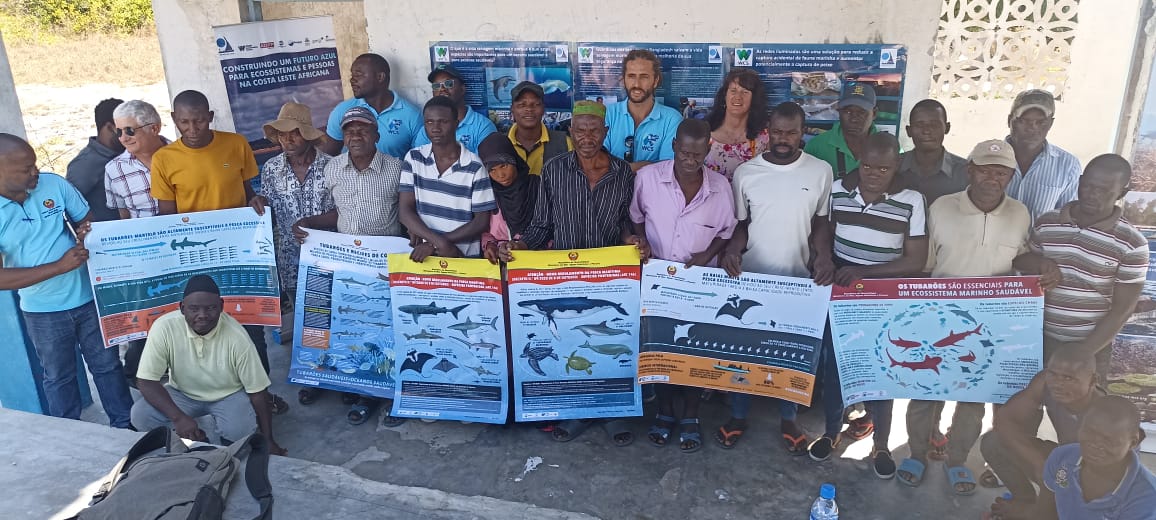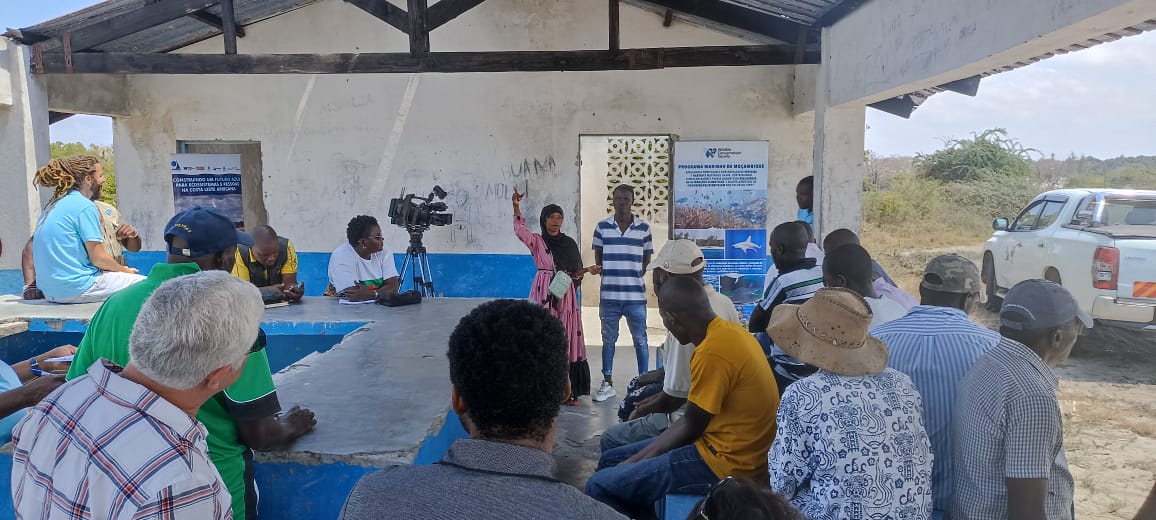Mozambique's coastal waters are home of at least 132 species of sharks and rays, 29 marine mammals and five sea turtles, of which more than 60 or 61% are threatened with extinction in the near future. Bycatch in small-scale fisheries has been identified as a high priority threat to 90% of the threatened marine wildlife species that occur in Mozambique and small-scale fishermen are responsible for around 85% of the country's total marine fish catch.

To help reduce or eliminate this scenario, WCS took the initiative to develop a pilot project in which local fishers would be involved through training in the use of UV lamps to reduce bycatch. With support from the Mozambican Sharks and Rays project and the Blue Future Project teams, WCS Mozambique, with the support of its expert Brian Smith and WCS’s WIO Marine Program Director Jennifer O’Leary, held three workshops in September 2023 : one in Maputo City and another Nacala-Porto, involving different institutional entities related to small-scale artisanal fisheries, and in Matibane, Mossuril District, Nampula Province, involving fishers and representatives of the local CCP, on global, regional and national perspectives for reducing marine wildlife bycatch in Mozambique. A total of 51people and 23 institutions were involved in these training workshops.

These workshops discussed possible solutions for reducing bycatch of marine species in Mozambique, including strengthening knowledge about bycatch of marine species, as well as identified higher priority species and promising opportunities for reducing bycatch of marine species in Mozambique.
Some solutions to reduce marine wildlife bycatch were highlighted among the many others raised, such as the importance of involving different actors, including tourist bodies and fish buyers, i) to discourage bycatches, especially of protected species; ii) the dissemination of legislation through posters should be strengthened and the penalties for catching protected species should be reviewed; iii) the promotion of alternative livelihood activities for fishermen can help reduce fishing pressure and considerably reduce bycatches; and iv) the training of law enforcement agents (Fisheries Law; REPMAR, etc.) should be strengthened to increase their mastery and monitor its proper application.